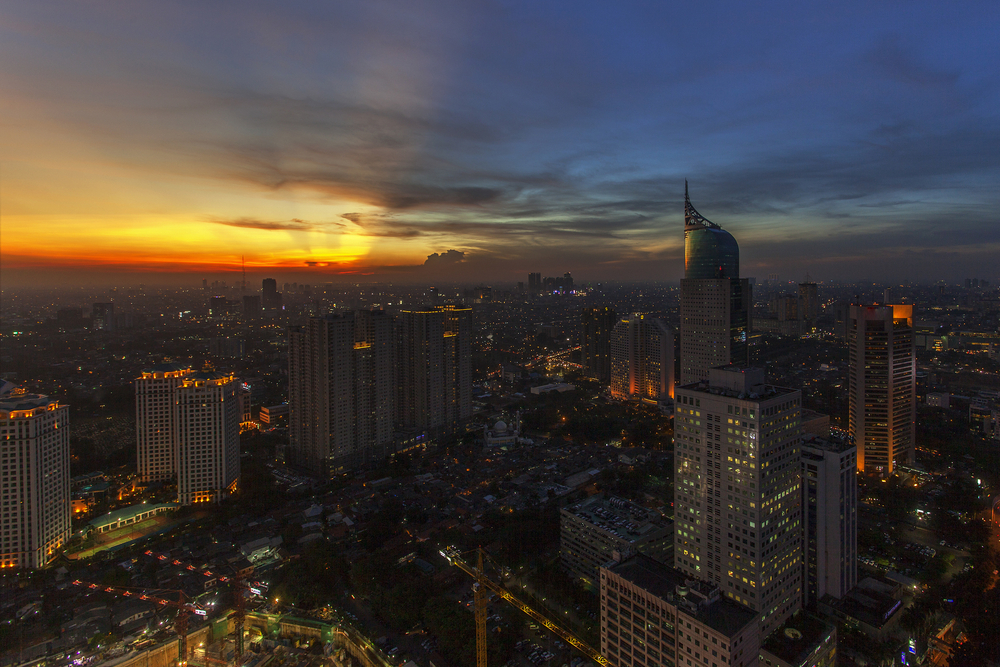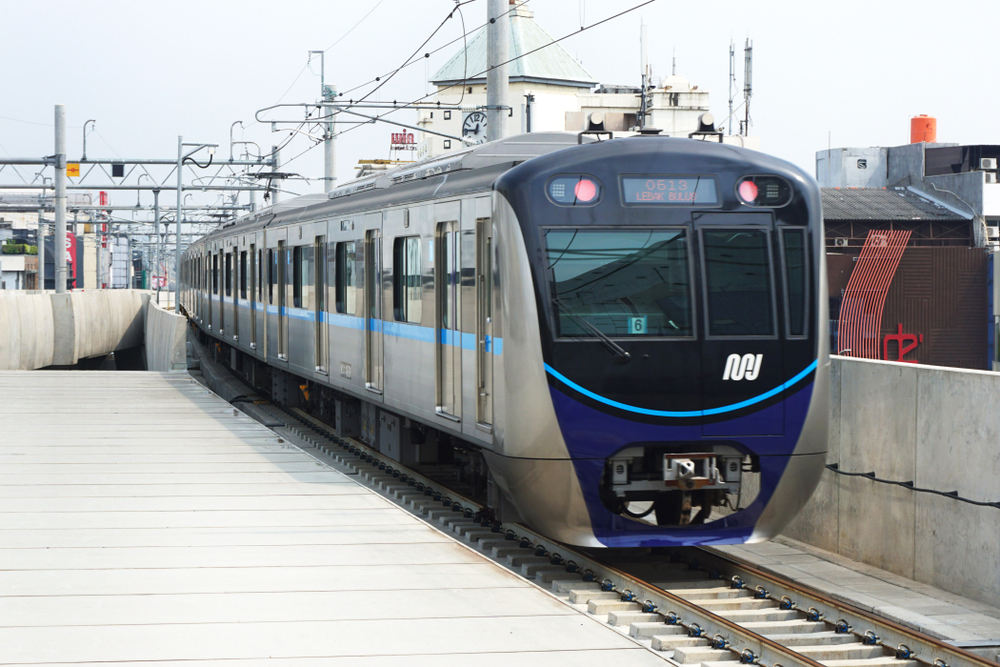Indonesian real estate on the cusp of reform
With his second term now well underway, President Joko Widodo aims to right the numerous imbalances in the nation’s ailing property sector

Wealth in Indonesia is an exercise in extremes. The world’s fourth most populous nation has 50 million out of 270 million inhabitants straddling the poverty line. By way of contrast, its four richest individuals are worth more than the poorest 40 percent combined. The income gulf has widened to such extent that, in February, a minister even considered issuing a fatwa that would require rich citizens to marry the poor.
President Joko Widodo has more secular solutions in mind. After last year’s electoral victory, the centrist leader orchestrated a medley of socio-economic reforms set to rekindle property demand across Indonesia’s various income groups. If anything, the policies could be Widodo’s finest pieces of statecraft for an economy that only grew 5.02 percent in 2019—the slowest since 2015.
Adjusted for inflation, residential property prices dropped 1.17 percent year-on-year in 2019, according to figures from Bank Indonesia. Although 17 of 18 major cities saw nominal property price growth in 2019, real property prices only rose in one city, Medan, at 4.53 percent. Prices in Jabodetabek (Greater Jakarta) and Banten dropped 1.53 percent while Bandung’s fell 1.85 percent.
“The property market in Indonesia has been oversupplied for the last couple of years, and now it’s getting worse because of COVID-19,” points out Bagus Adikusumo, senior director of office services at Colliers Indonesia, referring to the infectious disease currently causing mini-recessions worldwide. “The high-end and luxury condominium markets have basically decided to stop the supply. Developers now only focus on middle-class apartments below IDR1 billion and landed housing.”
Data from real estate portal Rumah.com reveal that apartment prices diminished 1 percent year-on-year in the fourth quarter of 2019 while landed residential property prices leapt 8 percent from the previous year. Overwhelming demand for landed homes saw Rumah.com’s property market price index rise to a high of 112.1 in the last quarter of 2019—7 percent up from Q4 2018.

“Infrastructure development such as toll roads and public transportation are prompting home seekers to consider landed houses in the outskirts of the city as distance is no longer a problem,” says Marine Novita, country manager of Rumah.com. Jakarta had welcomed its first mass rapid transit (MRT) line in March 2019, followed by the light rail transit (LRT) line in December. By 2021, Java will give rise to Southeast Asia’s first high-speed railway.
Landed residences offer nimble capital gains at around 5 percent a year, reports Adikusumo. Landed products between IDR700 million to IDR1.3 billion were absorbed well last year, mostly by overseas Indonesian workers.
“People normally buy to live. If they buy to invest, they are not focusing on yield but on long-term capital gains. After COVID-19, I’m sure the capital gains on homes will be higher,” he predicts.
Apartment supply has been outpacing price growth over the last two years. According to Rumah.com, the national supply index for apartments in Q4 2019 stood at 106.7—a growth of 13 percent from Q4 2018—while the average quarterly price index for apartments only grew 1 percent from 2018 to 2019, compared with 3 percent in 2017. A shakeup in market segments targeted by developers is driving the price moderation. “Around five to 10 years ago, apartments were sold as lifestyle commodities. Now, apartments are being sold not only to the middle or upper class, but also the middle to lower class,” Novita explains.
Non-landed homes still relish a level of currency in Jakarta, thanks to the opening of the MRT and LRT lines. Strata-title apartments in the metropolis hit an average price of IDR34.8 million per square metre in 2019, an annual rise of 3 percent, according to Colliers Indonesia. “Even though the property market is slowing, development of projects near transit stations is still going on,” states Steve Atherton, director of investment services at Colliers Indonesia.
In Jabodetabek, reports Adikusomo, “there are a few transit-oriented development (TOD) projects—projects with direct connection to the LRT and MRT. People will still be buying these apartments in the next 12 months.”
Recently loosened macroprudential regulations may enable end users and investors to absorb the surfeit of apartments. In December, the central bank lowered the loan-to-value (LTV) ratio for mortgages by five percentage points, reducing downpayment for apartments smaller than 70 square metres to 10 percent, bigger ones to 15 percent. The loosened LTV rules arrived with the fourth reduction of the benchmark interest rate, the seven-day reverse repo rate, to 5 percent. Bank Indonesia further lowered this to 4.75 percent in February to blunt the impact of COVID-19.
Around five to 10 years ago, apartments were sold as lifestyle commodities. Now, apartments are being sold not only to the middle or upper class, but also the middle to lower class
Today, analysts are banking on Widodo’s controversial omnibus bills—sweeping amendments for Indonesia’s many overlapping, convoluted regulatory and taxation laws—to clarify foreign property ownership rules. Under rules introduced during Widodo’s first term, expatriates can exert a form of ownership, hak pakai, over landed homes for up to 80 years. There is confusion, however, on whether expats can own a hak pakai deed for a unit in developments with Right-to-Build deeds, also known as hak guna bangunan.
“Allowing foreigners to purchase a high-end condominium is not a 100-percent clear policy. We hope that that a new proposal on foreign ownership will be hashed out in the omnibus laws,” says Adikusumo. An early draft allows expatriates in certain positions and businesses to live and work in Indonesia without permits.
Indonesia’s pajak penjualan atas barang mewah (PPnBM) or luxury tax has also undergone change, aimed at moving slow sales of upmarket dwellings. Since June, the minimum threshold for luxury tax has been raised from IDR10 billion to IDR30 billion, exempting anything cheaper. Previously, landed homes worth at least IDR20 billion and apartments worth IDR10 billion were subject to the tax, which stands at 20 percent.

Upscale homes in Indonesia, which usually fetch prices between IDR6 billion to IDR8 billion, will vastly benefit from the revised tax schedule. But, Adikusumo points out “the luxury tax rule is not making any big impact because it only applies to a small percentage of Indonesians. There are not so many transactions of expensive products.”
According to Rumah.com, apartment supply is still inordinately concentrated in Java, the largest suppliers being Jakarta (66 percent), West Java (12 precent), and Banten (10 precent). Noting how the country’s Gini coefficient—a universal measure of income inequality—stood at a worrying 0.384 last year, Widodo has committed to allocating a bulk of state expenditure this year to “developing regions outside Java Island” to reduce “inter-regional inequality.”
Widodo’s grandest gesture in that respect would be the commitment to transfer the capital from Jakarta to Kalimantan. The plan, submitted to parliament in September, has taken on a sense of urgency as Greater Jakarta explodes with a populace of 30 million. “Jakarta is carrying a lot of weight. Yes, we developed the MRT, the LRT and all that stuff, but Indonesians still have to change their way of living. The wise long-term decision is to move some of the people out,” Adikusumo says.
Indonesia’s pipeline of residential supply will continue to hew towards end users and middle- and low-income earners until at least 2023, predicts Adikusumo. “Nobody’s going to do a high-end or luxury apartment building anymore. People are focusing on middle-class apartments and housing, subsidised housing, apartments in TOD projects, and the like. Those are the ones that are going to be successful in the market.”
By matching cashed-up property seekers and a disadvantaged populace to units apropos of their needs, Indonesia’s new policies could steer the country in the right direction after the dust settles from the pandemic. Whether they prove to be stopgap measures or lasting legacies befitting of an outgoing premier, they could give property seekers more sensible choices beyond forced marriages.
This article originally appeared in Issue No. 160 of PropertyGuru Property Report Magazine
Recommended
Why everyone is moving to Selangor and Johor: Malaysia’s real estate comeback
Malaysia’s upturn in fortunes is especially prevalent in secondary destinations such as Selangor and Johor
Penang’s silicon boom: How the US-China tech war is supercharging local real estate
Penang’s booming semiconductor industry has created ripples within the local real estate sector
New leader, new opportunities: How Hun Manet is shaking up Cambodia’s real estate game
Hun Manet is overseeing decent economic growth and widening access to the country’s real estate market for foreigners
Singapore embraces inclusive housing reforms amid resilient demand
The Lion City’s regulatory strength continues to exert appeal for international investors








